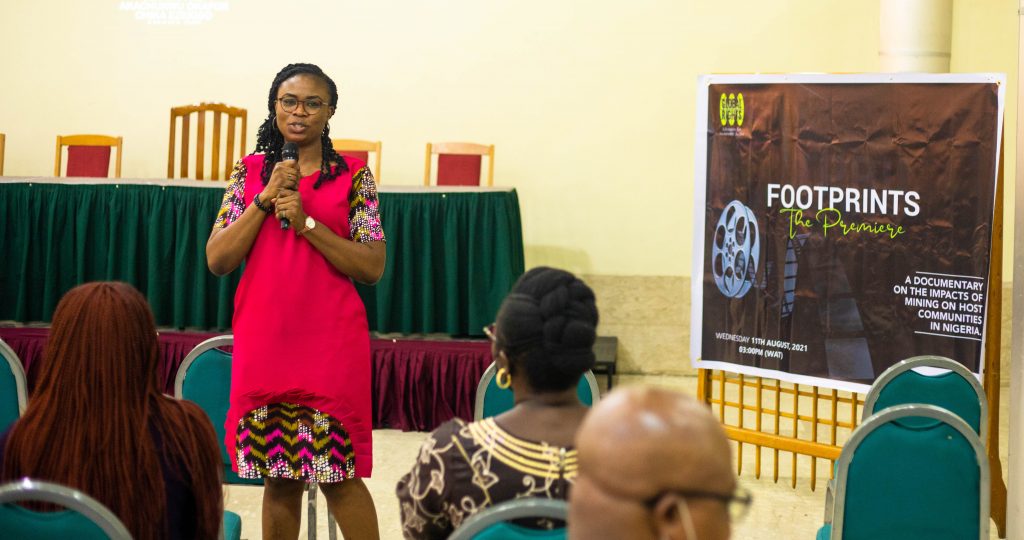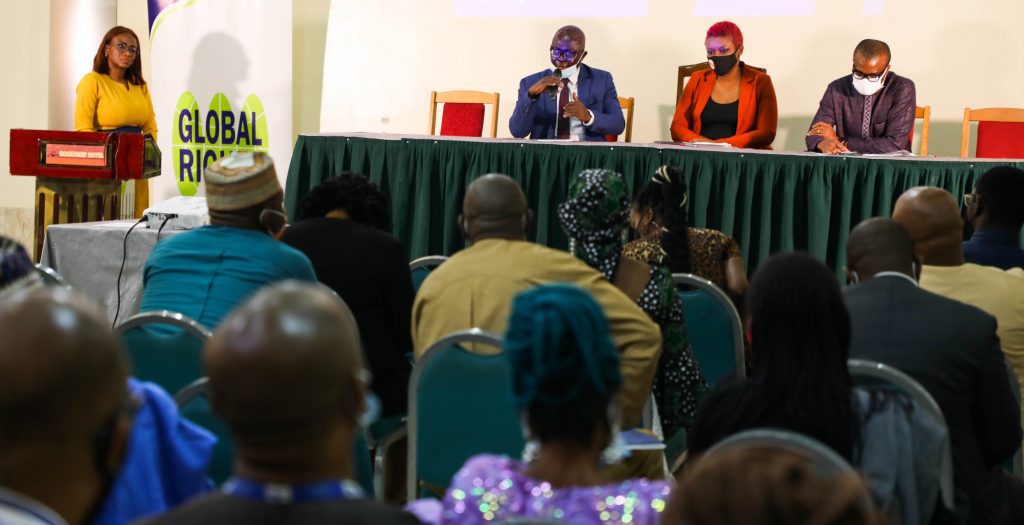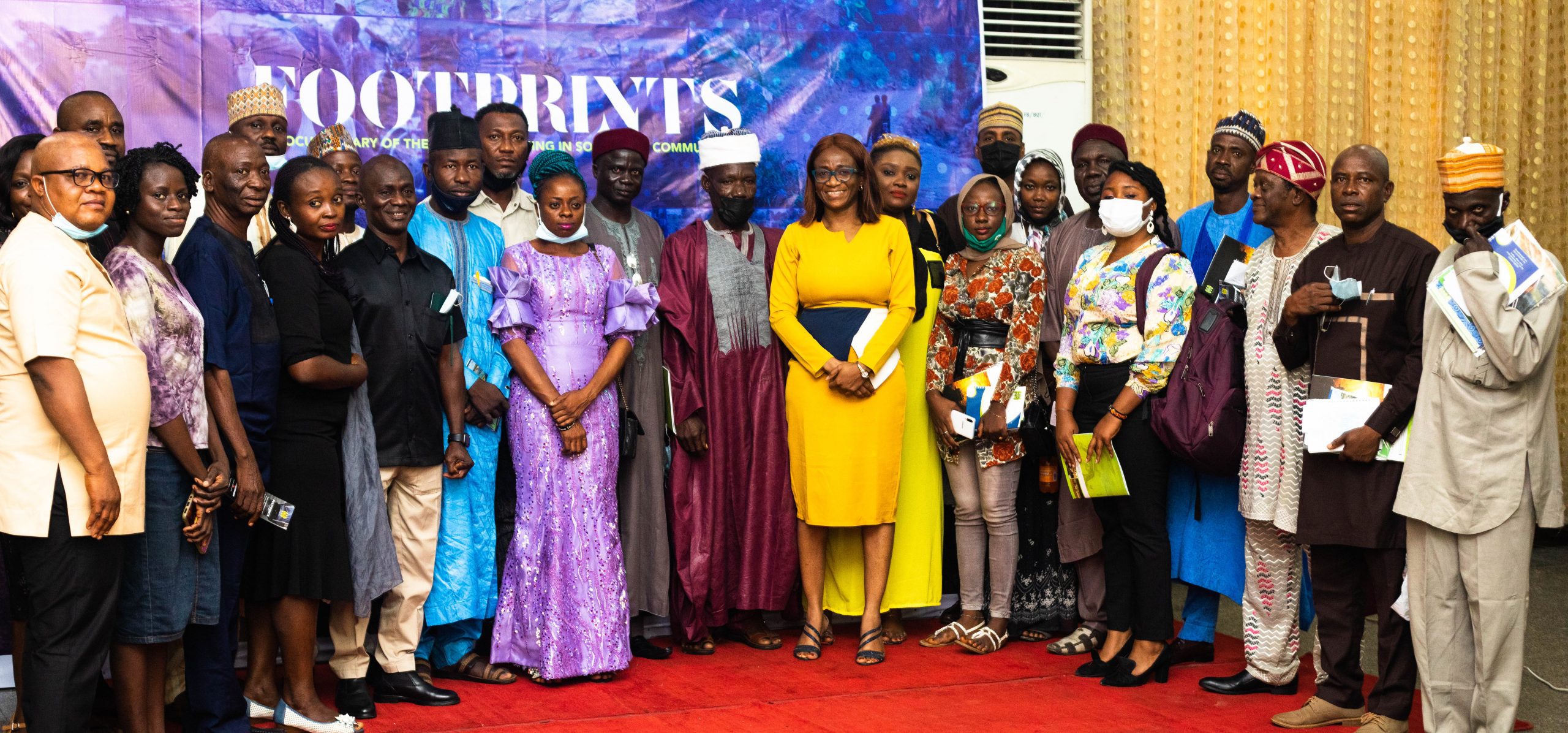One of the leading voices prioritising conversations on social justice particularly for the mining host communities within the mining sector in Nigeria, Global Rights Nigeria -a Human Rights organization working to build grassroots movements that protect the rights of marginalized populations has officially launched a policy brief on Climate Change and Mining in Nigeria on Wednesday in Abuja.
The organization also premiered the most anticipated documentary “Footprints” – the hallmark Documentary of Global Rights’ ten years of impact in Nigeria’s mining sector same day.
According to the organization, the newly launched Climate Change and Mining Policy Brief seeks to weigh the scale to provide informed recommendations for improving the legal and regulatory frameworks that govern mining in Nigeria, and importantly, building climate adaptation and resilient capabilities for both mining companies and mining host communities.
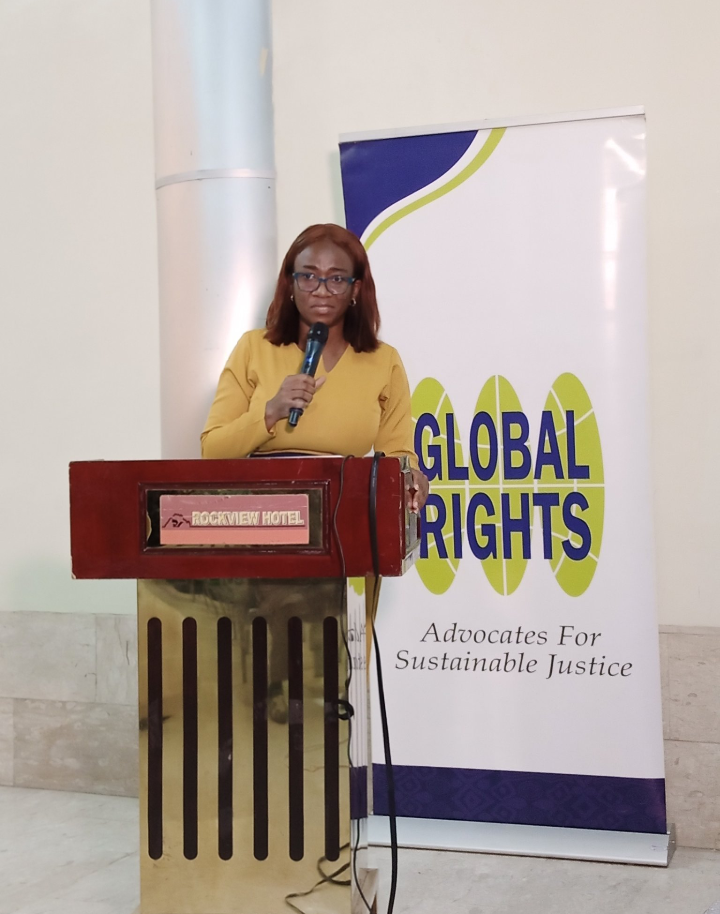
The policy brief reveals the tensions between the nation’s climate change commitment, and its aspiration to develop its mining sector to mitigate its energy poverty, and its much-needed economic growth, are in need of careful balancing.
“In 2009, 76% of 41 global mining companies that made disclosures to Carbon Disclosure Project reported that climate change represented physical risks to their operations.” says the policy brief.
The Policy brief further reveals environmental pollution from coal mining that is already devastating coal mining host communities in Gombe and Kogi States.
Abiodun Baiyewu, Executive Director, Global Rights Nigeria in her welcome address at the launch said Nigeria’s vulnerability to climate change is highly evident and coal being of one the solid mineral is not the only challenge Nigeria has to contend with in its preparedness for climate change.
“It is evident that mining in general will increase this vulnerability. Its entire mining value chain is in need of a futuristic stress test”
“In 2014, Nigeria’s total Greenhouse Gas emissions (GHG) were 492.44 million metric tons of carbon dioxide equivalent (MtCO2e), totaling 1.01 percent of global GHG emissions.
“This means that the Greenhouse gas emissions per person per year is less than 2 tons compared to the global average of over 6 tons” she said.
Nigeria’s Vice President, Yemi Osinbajo, who was ably represented by Dr Waziri-Azi, Special Assistant to Vice President on Rule of Law at the launch admitted in his Goodwill Message that the impact of climate change in the mining industry and how the industry can respond to it, has increasingly been a topic of discussion over the past decade.
“Mining is currently responsible for 4 to 7 percent of greenhouse-gas emissions globally. Making the mining sector, one of the major emitters of greenhouse gases.”
“This simply shows that, when we do not take care of the planet, it fights back and this is
evident in the increased number of wildfires, tropical rain storms, flooding, and extreme heat,
experienced around the world.
“Which is why today provides an opportunity to reframe conversations around climate change and particularly around mining.” Osinbajo said
Osinajo however reignited the hope of the participants about Mr President’s Commitment to galvanize action to address climate change.
“We may all recall that this past April, Mr. President participated at the United States’ Climate Change Summit at which Mr. President assured the international community of Nigeria’s
preparedness to galvanize action to address climate change”
“As leading producers of natural gas Nigeria remains committed to the global movement to
achieving net-zero emissions, which will be done through a pathway that is just, equitable
and inclusive. As this will ensure that we are able to achieve our aspirations towards becoming an industrialised nation.”
Later on, at the premiere, Baiyewu spoke about the “Footprints” being the compilations on mining host communities and their perspective into issues of environmental degradation, sociopolitical and economic struggles in the midst of abundance.
“This documentary trails Global Rights work and impact in mining host communities in Nigeria” she said.
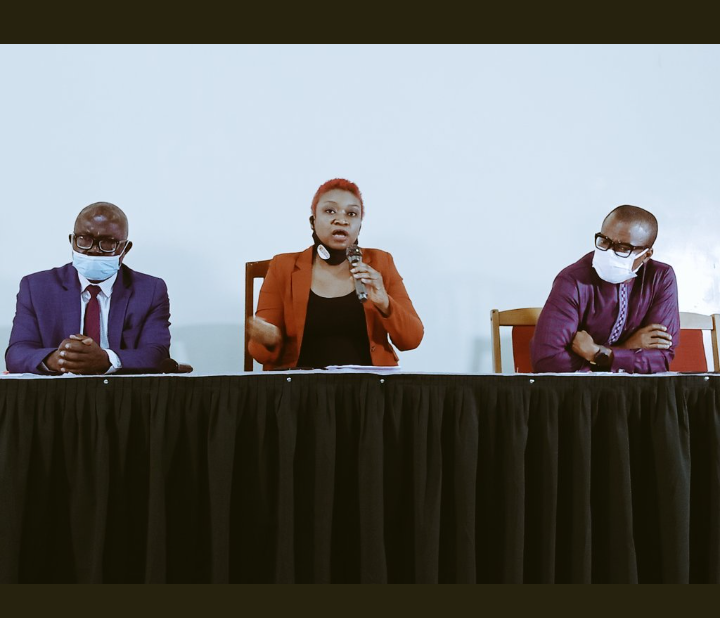
Panelists at the event also spoken extensively on how best Nigeria Government could scale up it commitments toward tackling impact of climate change in the Mining sector.
Watch the Footprints Below
